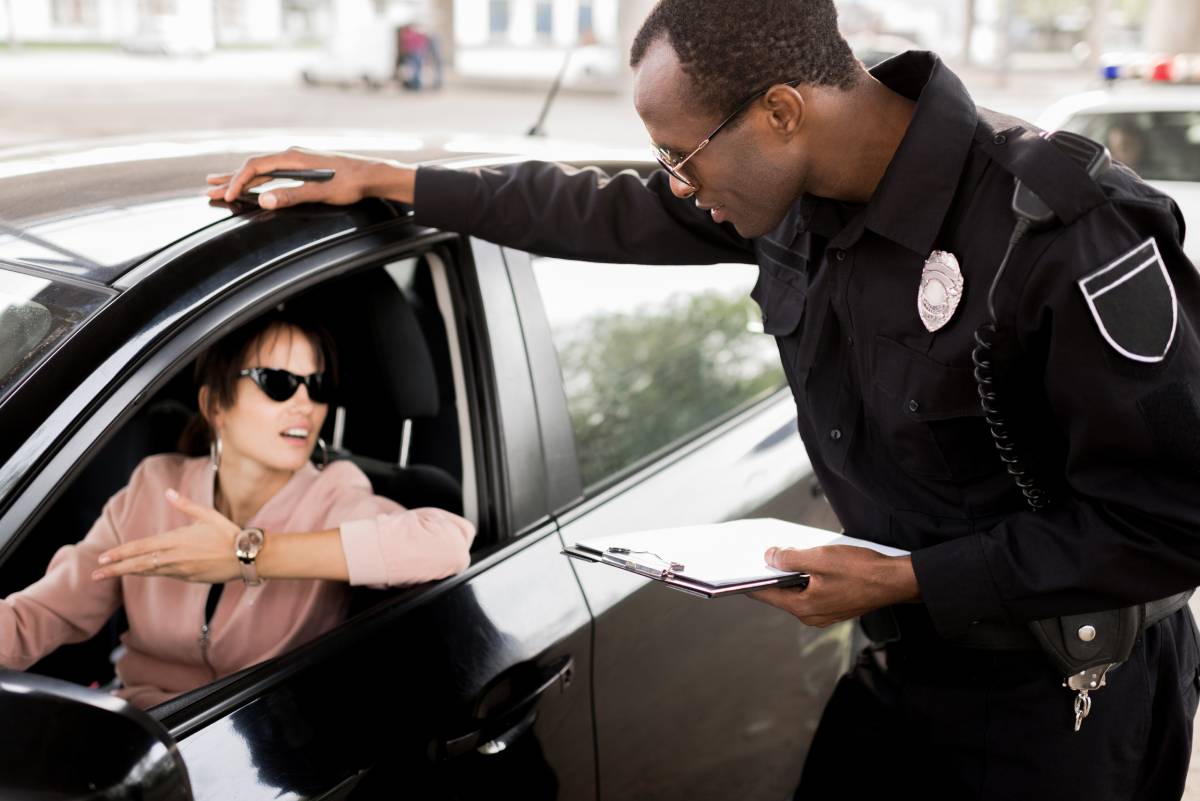De-escalation training is easy to say, but harder to execute. However, the science is clear that evidence-based de-escalation techniques are worth the effort to reduce the need to use force by law enforcement, healthcare professionals, and other frontline workers, leading to better situational outcomes and safer communities. De-escalation is more than just talking someone down; it encapsulates a variety of techniques, including verbal and non-verbal, that need to be practiced and honed to increase the positive effects. Let’s take a look at what de-escalation training entails and examine the main techniques that are used.
Evidence-based de-escalation training
Evidence-based de-escalation training focuses on scientific analysis on what de-escalation techniques work, rather than assumptions. A training course or program is considered evidence-based if it utilizes research from peer-reviewed publications with high internal and external validity that shows statistically significant positive changes in frontline worker or law enforcement and public interactions from implementing their findings (Krameddine, 2017). In other words, instead of training based on anecdotes or feelings, evidence-based training uses real data that is backed up by repeatable results.
Verbal and non-verbal communication
Your tone of voice, the words you choose, and your non-verbal actions like body language, kinesics (body movements and gestures), and proxemics (how close you are to someone else – “personal space”) should all be considered during any public encounter. Verbal and non-verbal communication have a symbiotic relationship with each other, where both forms of communication showcase how the person is thinking and feeling towards a situation.
Verbal communication is relatively straightforward; thinking before you speak and responding with an assertive, but a patient tone and using polite language is standard for de-escalation. Non-verbal communication is a bit more difficult in that some of it is unconscious, and in order to control it, you need to be mindful of your personal tendencies and behaviors and be prepared to change them for certain situations. For instance, one study reveals that non-verbal communication is foundational, even more than verbal communication, in determining a positive or negative impression between law enforcement and suspects (Otu, 2015).
Imagine this scenario: you’re out partying with some friends at a well-known bar in your city or town, and the festivities continue long into the night. At some point, you all decide to take a walk, admiring the sights and sounds of a weekend nightlife. At some point along your walk, you see a tall fence in front of a park and proudly declare to your friends that you can scale it, no problem. As you climb, what you don’t know is that the other side of the fence is not a public park, but private property. Nearing the top, you hear the familiar sound of police sirens, and turn your head to be greeted with a sea of flashing red and blue. Struggling to get down, you finally land on your feet – only to be greeted head-on with a waiting police officer.
Considering this scenario, which version of the officer below would you rather deal with?

It’s a subtle difference, but crossed arms send a “closed” message, which could be interpreted as an unwillingness to hear out the situation. Uncrossed arms, however, could indicate that at least the officer is willing to talk. This small difference in body language sets the tone for the interaction – before any words are even spoken between you and the officer.
Empathy
Being able to recognize the feelings that someone else is experiencing in a given situation and imagining yourself reacting in a similar way is empathy. In other words, putting yourself in someone else’s shoes, and being able to experience a situation from their perspective.
In a recent study on the need for empathetic verbal de-escalation skills in healthcare workers, the results found that basically, every healthcare worker experiences some form of aggression or violence at work, sometimes daily. Unfortunately, staff also report not being adequately trained or equipped to handle these situations effectively. When training was implemented, with a specific focus on empathy, the results were overwhelmingly positive.
Empathy is important for de-escalation because the more that you can understand why someone is acting in a certain way, the more you will be able to see the larger reasons surrounding their behavior and act accordingly.
Prevention and non-escalation
Techniques in prevention and non-escalation are focused on being aware of what you are saying in a given situation and being able to deflect rude or insulting phrases. In other words, avoiding escalation by explaining yourself and not using phrases that can escalate the situation, like “calm down”, “relax”, or “listen”. For instance, before handcuffing and detaining a suspect, first, explain that you need to handcuff them for safety reasons. If the situation is escalated despite your efforts, the willingness to apologize goes a long way in de-escalation.
Environmental
Being aware of the environment around you is beneficial for keeping yourself and others safe. Good situational awareness means that you can make better judgement calls about the actions you take. For instance, if you’re a lone police officer and you find yourself in a situation where you are faced with a group of violent individuals. In this instance, you’ll likely decide to hang back in an inconspicuous area while you wait for backup.
Long-term support
In any situation where it is clear that the person or people you are dealing with need further support, it’s important that every effort is made to provide it to them. By providing support, you’re reducing the chance that the incident reoccurs. This means that you’re looking at the big picture, and potentially removing the reasons behind why that person (or people) were involved in a negative situation in the first place.
The importance of evidence-based de-escalation training
The research is clear that evidence-based de-escalation training is the most effective method for reducing violent interactions between frontline workers and the public. The goal in any interaction is that both parties leave with a sense that it went as positively as possible, and evidence-based de-escalation training gives it the best chance of doing so.
Evidence-based de-escalation training is within your reach. Begin your training today.
Sources:
Krameddine, Y. Expert Report for the Ministry of Community Safety and Correctional Services. De-escalation Training: Scientific Review and Recommendations (in press). In Andersen, J.P., Di Nota, P.M., Poplawski, S., Pitel, M., Zurowski, J., and Azmi, P. (2017). The Science Behind De-escalation and Use of Force Decision-Making: Policy Recommendations for Police Training. Submitted to Ministry of Community Safety and Correctional Services, June 2017.
Otu, Noel. Decoding nonverbal communication in law enforcement [online]. Salus Journal, Vol. 3, No. 2, 2015: 1-16. Availability: <https://search.informit.com.au/documentSummary;dn=264350093655814;res=IELHSS> ISSN: 2202-5677. [cited 22 Sep 20].







you are in reality a just right webmaster The site loading velocity is incredible It seems that you are doing any unique trick In addition The contents are masterwork you have performed a wonderful task on this topic
Your positivity and optimism are contagious It’s evident that you genuinely care about your readers and their well-being
Your writing is so genuine and heartfelt It’s refreshing to read a blog that is not trying to sell something or promote an agenda
Thank you for addressing such an important topic in this post Your words are powerful and have the potential to make a real difference in the world
Somebody essentially help to make significantly articles Id state This is the first time I frequented your web page and up to now I surprised with the research you made to make this actual post incredible Fantastic job
What i do not understood is in truth how you are not actually a lot more smartlyliked than you may be now You are very intelligent You realize therefore significantly in the case of this topic produced me individually imagine it from numerous numerous angles Its like men and women dont seem to be fascinated until it is one thing to do with Woman gaga Your own stuffs nice All the time care for it up
Very well presented. Every quote was awesome and thanks for sharing the content. Keep sharing and keep motivating others.
I loved as much as you will receive carried out right here The sketch is attractive your authored material stylish nonetheless you command get got an impatience over that you wish be delivering the following unwell unquestionably come more formerly again since exactly the same nearly a lot often inside case you shield this hike
Magnificent beat I would like to apprentice while you amend your site how can i subscribe for a blog web site The account helped me a acceptable deal I had been a little bit acquainted of this your broadcast offered bright clear idea
I do trust all the ideas youve presented in your post They are really convincing and will definitely work Nonetheless the posts are too short for newbies May just you please lengthen them a bit from next time Thank you for the post
Thank you for the auspicious writeup It in fact was a amusement account it Look advanced to far added agreeable from you However how can we communicate
I do not even know how I ended up here but I thought this post was great I do not know who you are but certainly youre going to a famous blogger if you are not already Cheers
Thank you I have just been searching for information approximately this topic for a while and yours is the best I have found out so far However what in regards to the bottom line Are you certain concerning the supply
I was recommended this website by my cousin I am not sure whether this post is written by him as nobody else know such detailed about my difficulty You are wonderful Thanks